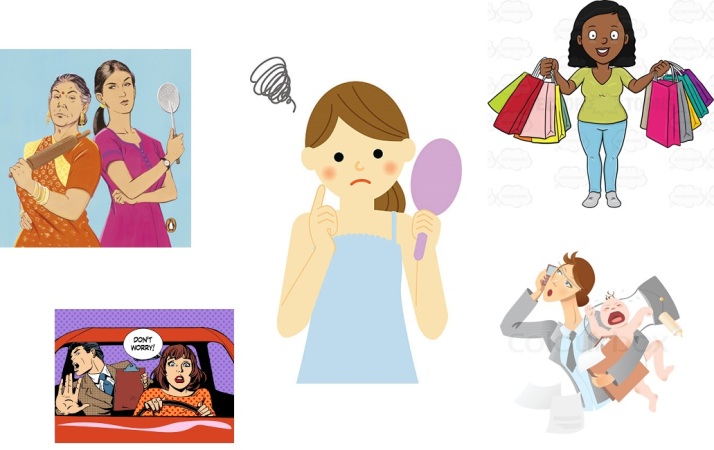Driving on traffic-laden, water-clogged, pothole-filled Bangalore roads has always been a spiritual experience for me. It sharpens my senses – I’m acutely aware of every inch of space around me; I expect the motorist to overtake me from the left when I’m turning left; I anticipate the little kid to run across my car when I’m looking the other side; I sense the irritation of the auto driver behind me when I refuse to move forward half an inch; I predict the honk from the taxi guy because he too notices I haven’t moved 1.27 centimeters ahead; I expect the cow to come in front of my car and pick that very spot to sit and chew its cud. I am shaken out of my reverie when I realise the benevolent cow has chosen not to sit in front of my car, and both the taxi driver and the auto man are now eyeing the 70 inches of holy space the cow has created.
In this heightened state of awareness, I observe a very interesting phenomenon. Poor pedestrians who’ve been waiting to cross the road for a while, suddenly spot a woman in the car, and their face automatically breaks into a smile. They raise their hands, grab their bags, kids, and animals, and cross the road, confident the woman wouldn’t ram into their animals. Contrary to popular belief that women are poor drivers, women seem to instill faith in the hearts of pedestrians that they will be cared for.
****
Indian languages have a lovely peculiarity of having a different name for every conceivable relative you have. Your father’s sister’s husband and your mother’s brother can’t both be called uncle, surely! To reduce the amount of words you’ve got to learn, Indian women decided to introduce a brilliant variation – Mothers-in-law were called “mummy”, and mothers were called “ma” or “amma”.
A friend of mine was discussing some domestic problems with her friends. While they lent a patient ear and offered her solutions, her heart kept whispering the same thing over and over again. She voiced her thought, “What if I spoke to amma about this?” The women said in unison, “Yes, who better to help you than the lady who brought you into this world? A mother is a girl’s best friend. She is the one you can always trust. Go talk to her” She cleared her voice and said, “I wasn’t talking about the woman who brought me into this world, I was talking about the woman who brought the world to me – I was talking about my mother-in-law”. The women in the group smiled. Their friend not only called her mother-in-law “amma”, but also accorded her with the same status as her mother.
****
For hundreds of thousands of years, until around 8000 BC, all human beings lived as hunter-gatherers— they survived by hunting wild animals (the man’s job) and foraging for wild plants, nuts, fruit, and vegetables (the woman’s job). Interestingly, women were the main “breadwinners” in hunter-gatherer groups. Anthropologists estimate that women’s gathering provided around 80-90 percent of groups’ food —a fact which has led some anthropologists to suggest that these people should be renamed gatherer-hunters.
And this brings us to shopping (I hear excited yelps from the ancient gatherers). When most women shop, they are in more of a ‘gathering’ mode – browsing from tree to tree (or shop to shop) looking for ripe and nutritious fruit. They spend a lot of time examining the food, checking its freshness and edibility, and they discard quite a lot of it. At the end of the trip, they return home laden with a wide variety of food stuffs (or shopping bags)
A colleague of mine was planning his travel for Diwali. He told me how he used to take a fraction of the time he currently took, to plan holidays in the past. Earlier, he said, he didn’t have to worry about buying gifts for his uncles, whereas now, his wife would carefully choose something for his father’s sister’s husband and a different gift for his mother’s brother. While she always felt guilty about the money she spent on shopping, he told me how his phuuphaaji told him how he remembered my colleague and his wife every time he used the toolkit the wife had bought him. “I love how she thoughtfully shops for the entire family”, he told me.
****
The feeling of guilt and worry that a working mother has never leaves her. She constantly worries that she isn’t giving her child enough attention; that she doesn’t love her child as much as other moms do; that her child will always feel a void that will manifest itself in unimaginable sadness later in life.
The theme at my daughter’s school last term was superheroes. Seven out of eleven girls in her class wanted to dress up as their moms. Some girls’ mothers were stay at home moms, some were teachers, some were corporate professionals, one was a dancer – but to every girl in that group, her mom was a superhero.
****

When a woman holds up a mirror to herself, she usually sees a bad driver; a woman who doesn’t treat mummy with the affection she deserves; someone who wastes money on excessive shopping; someone who never gives her children enough time and love. But the world sees her as a considerate soul on the road; as someone who boldly strikes away the “in-law” from amma and shares a bond that’s just as special; as someone who brings the entire family together by her thoughtfulness; as someone who is a superhero.
Wouldn’t it be nice sometimes if a woman could see herself through the eyes of the world?
Superb, write up is superb, and the tribute to the so called weaker gender even more superb